Dr. Yoshihiko Iida participated in the 7th training workshop of the East Asian Biosphere Reserve Network (EABRN) (cover photo provided by MAB National Committee of the Republic of Korea).
A workshop titled ‘Biodiversity Infomatics in Big Data Era’ was held in Institute of Botany, Chinese Academy of Sciences (IBCAS) from September 4 (Mon.) to 9 (Sat.), 2017. 47 participants from 17 Asian countries (Uzbekistan (1), Tajikistan (2), Kazakhstan (2), Mongolia (2), Pakistan (3), India (1), Bangladesh (1), Sri Lanka (1), Philippines (3), Thailand (2), Vietnam (3), Nepal (2), Malaysia (1), Indonesia (1), South Korea (6), China (15), and Japan (1)) participated in the workshop.
The training course started with a lecture from Prof. Keping Ma (the Institute of Botany, Chinese Academy of Science) on the importance of information sharing on biodiversity conservation and monitoring particularly based on the field of taxonomy at Asian scale. More than 10 researchers from the institute provided lectures of more specific information on the topic. Through these lectures, participants learnt various methodologies to build specimen database utilizing the internet and to monitor animals and plants in forest areas with IT and remote sensing techniques. In addition, participants visited a long-term forest ecosystem monitoring site to understand and learn from the practical methods in the field. On September 9 (Sat.), Mr. Qunli Han, the former director of the Division of Ecological and Earth Sciences of UNESCO, gave a lecture on various efforts related to UNESCO Biosphere Reserves at global scale.
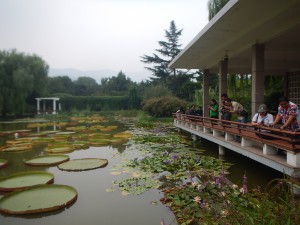
Botanical garden at Institute of Botany
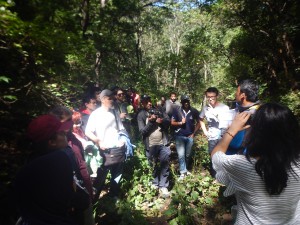
Introduction of research activities at the long-term forest ecosystem monitoring site in Beijing (Donglingshan 20-ha forest dynamic plot)
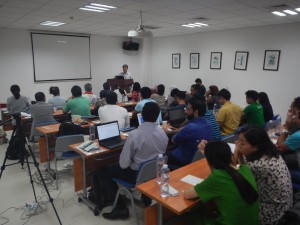
Lecture on UNESCO Biosphere Reserves from Mr. Qunli Han
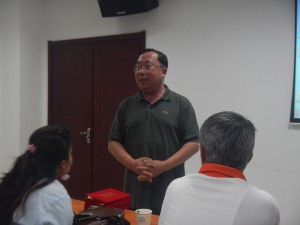
Greeting from Prof. Keping Ma to participants
The second half of the 7th EABRN workshop was held in South Korea from September 11 (Mon.) to 14 (Thu.), 2017. Seven people from four countries (Russia (2), Kazakhstan (2), Mongolia (2), and Japan (1)) participated and visited Gwangneung Forest Biosphere Reserve (GFBR) and Mount Sorak Biosphere Reserve (MSBR) in the northern part of the country (hosted by: MAB National Committee of the Republic of Korea and UNESCO Beijing Office). In the GFBR, together with local citizens, participants learnt about the current condition and measures against pine wilt disease and oak wilt disease in the forest reserve. In the MSBR, after listening to the explanation on the outline of the National Park’s governance and visiting a visitor center and a National Herbarium, the participants understood their various activities on wildlife (such as insects and mammals) protection, conservation, and monitoring in practice. They also visited related field sites. The efforts of protecting and conserving Korean goral species (closely related to serow) in the MSBR (implemented by Species Restoration Technology Institute, Korea National Park Services) were well explained. During the discussion, Dr. Iida pointed out about a case of wildlife damage in Japan similar to problems occurring in South Korea. It was recognized that wildlife management was a common issue for both countries. Furthermore, the activity of “Citizen College” at MSBR was introduced as the best practice that has contributed to connect the citizens with the Biosphere Reserve, through its course and alumni network.

Insect monitoring site in a forest plot (photo: MAB National Committee of the Republic of Korea)
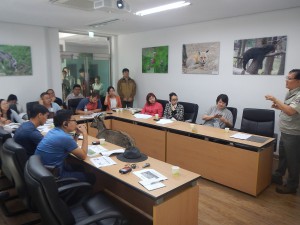
Explanation about the goral conservation activities being carried out by Species Restoration Technology Institute, Korea National Park Services, in Mount Sorak Biosphere Reserve
This international workshop and attendance of the participants were fully supported by UNESCO Beijing Office.




